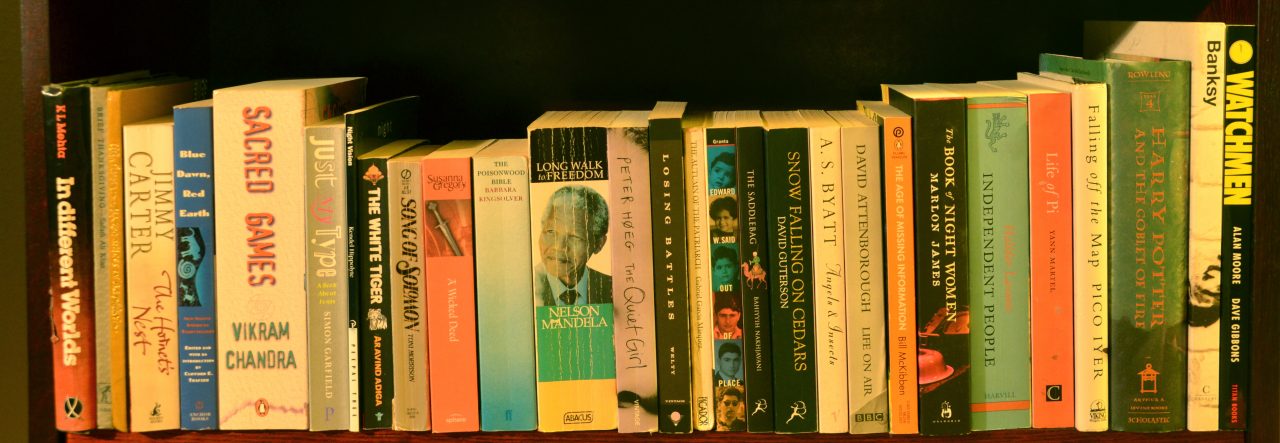Translated from Greek by Robert Dobbin
Published by Penguin, 2010, 112 pages. The original Discourses of Epictetus were written down in 108 AD.
Review by Thomas Peak
This magical little book comes from a time and place far, far away. It is adapted from the Discourses written by Epictetus, an emancipated Greek slave living in the Roman Empire (55-135 AD). His world is gone. But this hopeful guide to living a worthwhile life, on how to be a happy person and a good person (which are one and the same) feels as present and necessary as ever.
Amongst the greatest of classical Stoic philosophers, Epictetus’ goal is to teach others how to achieve peace and satisfaction, by focusing on what is truly valuable, and not on things which only appear to be. Cultivation of freedom is the ultimate pursuit of human life, and ‘What else is freedom but the power to live our life the way we want?’ (p. 25.) This freedom, we are told, and the calm, happy life is within everybody’s reach. It is the release from excessive desire for anything ‘external’; the acceptance of things as they are; and a rejection of worries. ‘Freedom is not achieved by satisfying desire, but by eliminating it.’ (p. 81.) To invest our well-being and in things essentially beyond our control is a foolish delusion. It is slavery. Money, lust, fame, things of these kind are diversions away from the source of true happiness, they are things which cannot deliver the satisfaction that we hope to achieve through them.
In vivid language, which avoids the dry and obscure prose of much more recent philosophy, it is difficult to see how a person could read this book and not come away with any benefit. To follow Epictetus’ advice is to treat others kindly, not to judge them, to recognise that you are as weak and as fallible as anybody else. ‘If you must laugh at someone [who is superficial and not perfect] then laugh at yourself as well.’ (p. 87.) From this two-thousand year old pen we read that we are all slaves together, to the extent that we submit ourselves to passing and unstable things. Thus, the bad person – the selfish, greedy, or the unjust – is simply somebody who lives and acts the way he does involuntarily; because nobody would choose to be a slave and to live an unhappy life.
Who wants to live with delusion and prejudice, being unjust, undisciplined, mean and ungrateful? ‘No one.’ No bad person, then, lives the way he wants, and no bad man is free. Who wants to live life experiencing sadness? So, can we find any bad person who is without sadness, fear, frustration or misfortune? ‘No.’ No more, then, can we find one who is free. (p. 53.)
So, the question is why should we be angry with people who mistreat us?
At times the standard can seem impossibly high. Epictetus is demanding. We are expected to monitor our thoughts, always being conscious of weaknesses and excessive desires, thinking about how we should or will approach various scenarios that we might encounter day-to-day. This is the training needed to live in equanimity and harmony with the world around us, enjoying it and appreciating its beauty for the very short time we have. But imagining freedom in the way Epictetus describes, can at first be as disheartening as to step in the gym thinking about deadlifting 500kg or running a two-hour marathon; of course, this is possible, just not for me. The point though, is not necessarily to be perfect but to try to live freer, happier lives. It is the effort that counts:
‘If you’ve succeeded in removing or reducing the tendency to be mean and critical, or thoughtless, or foul-mouthed, or careless, or nonchalant; if old interests no longer engage you, at least not to the same extent; then every day can be a feast day – today because you acquitted yourself well in one set of circumstances, tomorrow because of another.’ (p. 91.)
To choose fewer things which make us unhappy, and to look at other people more kindly, this seems like a good goal.
This short and accessible book can be read on a single long flight or train journey. It is easy to pick up and difficult to put down, and what’s more, Epictetus’ philosophy is not just warm, intensely thought provoking and witty, it is good medicine for the difficult moments in life. It deals directly with concerns like bad relationships, not having enough money, and not feeling important enough. Epictetus’ advice is the best prompt for reading this book:
Instead of a rich old man, cultivate the company of a philosopher, be seen hanging around his door for a change. There’s no shame in the association, and you won’t go away unedified or empty-handed, provided you go with the right attitude. Try at least; there is no shame in making an honest effort (p. 81)


Pingback: Book Recommendations – From Scratch